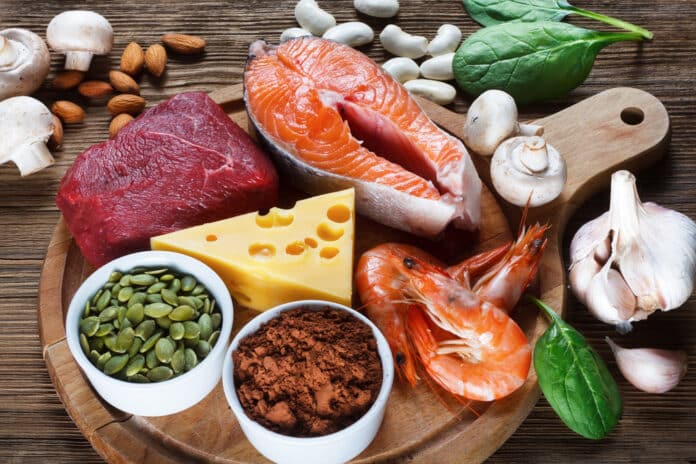
As you age, it becomes difficult for your body to gather all the nutrients it needs to stay healthy. This article will look at eight crucial nutrients you need to keep your body healthy as you age.
Nutrients You Need to Keep Your Body Healthy
As your body ages, here are eight vital nutrients to keep it in the best shape:
Calcium
With age, you start losing more calcium than you can absorb, which can make your bones weak and cause them to break easily (osteoporosis), commonly seen in women experiencing menopause.
Calcium ensures your muscles, cells, nerves, and blood vessels work correctly. You can get most of it from your bones, which in turn get it from the food you eat. To increase your calcium intake, you can consume milk, yogurt, and cheese, which are good sources.
Vitamin B12
Vitamin B12 helps create blood and nerve cells. On average, most Americans eat enough Vitamin B12-rich foods to meet their health requirement. However, aging can change that.
You can rely on animal food like fish, meat, egg, and dairy for natural sources. Other sources include pills, shots, and “B12-fortified,” like breakfast cereals.
Vitamin D
Vitamin D helps your body absorb calcium and prevent osteoporosis. In most cases, you can rely on sunlight as a good source, but fatty fish like mackerel, salmon, and sardines are excellent alternatives.
Vitamin B6
Your body uses vitamin B6 to fight germs and create energy, making it an essential nutrient as you age. You can eat chickpeas, liver, fatty fish, and fortified cereal breakfasts for easy sources.
Magnesium
Magnesium helps your body create protein and bone while keeping your blood sugar stable. As you get older, you may develop long-term conditions or take many medications that can leave you short of magnesium. You can start eating nuts, seeds, and leafy greens to prevent a magnesium deficiency in old age.
Probiotics
Probiotics are “friendly” bacteria that can help with digestive issues like diarrhea or irritable bowel syndrome and protect against allergies. You can try fermented foods like yogurt or sauerkraut for stable probiotic sources. However, you should contact your doctor to verify if you have any medical issues.
Omega-3s
These fatty acids are considered “essential” because your body can’t produce them. They are vital for your eyes, brain, and sperm cells and can protect against age-related diseases like Alzheimer’s and arthritis.
Unless your doctor says otherwise, you can get your omega-3s from food like walnuts, canola oil, or flaxseed.
Zinc
Zinc can help your sense of smell and taste and has the potential to protect your vision. You can eat oysters, beef, crab, or fortified breakfast cereals for stable zinc sources.
Conclusion
As you get older, your body will need these important nutrients to keep functioning properly. You can contact your doctor for advice on the best diet plan to help you meet your nutrient needs.


















